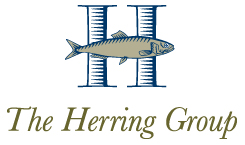This article originally appeared on LandscapeManagement.net on May 30, 2023. Greg Herring regularly writes for Landscape Management, providing financial analysis and insights tailored to landscape business owners.
I like to ask questions. Sometimes I ask questions of others, but often the most powerful ones are those I ask of myself. Asking myself questions does not mean I think I have all the answers; I do not. Asking questions helps me brainstorm. It expands my thinking. It forces me to be creative and consider many possibilities. It makes me better.
As we serve clients at The Herring Group, here are some questions we ponder as if we were owners of a landscape company. Perhaps these questions will expand your thinking. You may also want your team to brainstorm some answers.
What do we do (or what could we do) better than anyone else?
In business strategy, the answer to this question is called sustainable, competitive advantage. It represents a company’s secret sauce for higher-than-average growth and profitability.
In the landscape industry, a competitive advantage typically would involve a process. Examples might include hiring, training, employee retention, production efficiency, routing, quality control, customer acquisition and customer service.
Private equity firms are pouring money into the landscape industry. What opportunities do these firms see that I am not pursuing?
Some private equity firms probably believe that bigger landscape companies are more efficient. I disagree. If that were true, BrightView would either be highly profitable or have most of the revenue in their markets.
Most private equity firms see an opportunity to increase management effectiveness by bringing an MBA approach to the landscape company. This approach would include enterprise-grade software, regular reports and key performance indicators in regular meetings, and higher levels of accountability for the results that drive customer satisfaction and profitability.
What competitive advantages do owner-operated companies have over private equity-funded companies?
There are many. Here are two. First, customers and employees can speak directly to the owner. Second, owners can make decisions and adapt to changing local circumstances and opportunities faster.
What am I doing (or not doing) that is creating a lid for the company’s growth and improvement in profitability?
In The Herring Group 2022 Benchmark Report, 58 out of the 151 participating companies had an operating profit margin (operating income divided by revenue) of less than 4 percent; 31 of those companies lost money. It was a similar story in our 2021 Benchmark Report.
In our experience, most companies in this category perform consistently year to year. In other words, the systems that the company’s management has in place produce the results. Those people and systems are a lid to improving profitability. Those companies need to do something differently if they want to improve profitability.
What will happen to our landscape company during the next downturn in the economy?
The last recession in the U.S. (other than COVID-19) occurred from December 2007 to June 2009 — about 15 years ago. Many of today’s landscape companies were not even operating 15 years ago, which means many owners and managers have no context of the impact of a recession on their businesses.
Landscape companies with low operating profit margins will have to change rapidly to survive the downturn. Alternatively, the owners may have to invest cash or sell the companies for a very low price.
High levels of profitability help companies in a downturn in two ways. First, during years of high profitability, companies increase cash balances and reduce debt or both. Second, higher levels of profitability mean that a company’s revenue can decrease (typically in a recession) and the company can still be profitable.
How can I become a destination employer where people want to work here and grow their careers here?
Turnover is a cost buried in an income statement in the form of lost opportunity and inefficiency. You see the ad costs and the recruiter costs but not the value of the knowledge walking out the door.
Now that you’ve read my questions, what questions are you asking?

